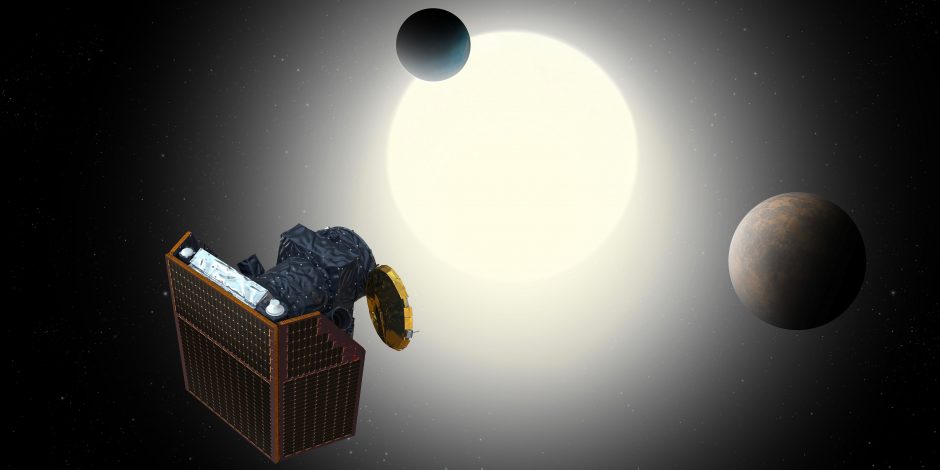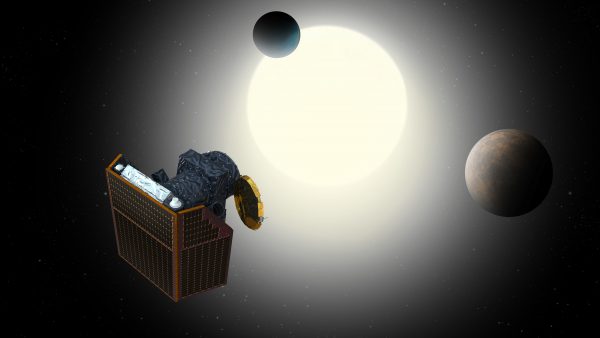Observing plans for CHEOPS

Observing stars that are known to harbour planets with unprecedented accuracy to characterise their planetary population – this is the main goal of the CHEOPS mission, scheduled for launch between 15 October and 14 November 2019. How the mission is going to achieve this is summarized in an article published by ESA on its CHEOPS website.

CHEOPS will characterise extrasolar planets. (Image: ESA/ATG medialab)
“By targeting known systems, we know exactly where to look in the sky and when in order to capture exoplanet transits very efficiently,” says Willy Benz, CHEOPS principal investigator at the University of Bern, Switzerland and director of the NCCR PlanetS. “This makes it possible for CHEOPS to return to each star on multiple occasions around the time of transit and record numerous transits, thus increasing the precision of our measurements and enabling us to perform a first-step characterization of small planets – in the Earth-to-Neptune size range.”
80% of the science observing time on CHEOPS is dedicated to the Guaranteed Time Observing (GTO) programme, defined by the CHEOPS science team. The two major themes of this core science plan are centred on determining the bulk properties of planets, in particular their densities, using transit observations. “After two decades of planet discoveries, with CHEOPS we enter the era of exoplanetology, delving into the physical and chemical properties of planetary systems beyond our own,” says Didier Queloz, chair of the CHEOPS science team, from University of Geneva, Switzerland. “The ensemble of themes provides us with a comprehensive scientific programme with which to explore the diversity of exoplanets and make progress in our understanding of planet formation, evolution and the emergence of life in the Universe.”
In addition to that, 20% of the science observing time is made available to the astronomical community in the form of an ESA-run Guest Observers’ (GO) programme. Proposals for guest observations for the first year of CHEOPS operations are under evaluation.
ESA article about HOW CHEOPS WILL INVESTIGATE PLANET-HOSTING STARS
Categories: News, Uncategorized
